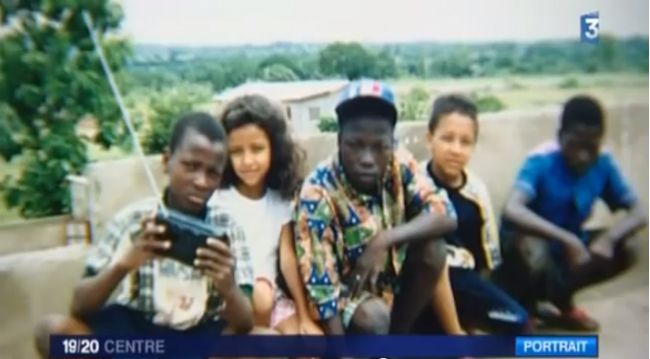
I made a small error (well, big in the context of the analysis I later make), but I think I missed it because of the re-writes I did of the post to get to the core meaning of the words and images.
Flora says:
...je pense que beaucoup de personnes peuvent se retrouver en moi.I translated "se retrouver" and "en" as:
...I think that many people can identify themselves with me.Later on, in an analysis of this statement, using the correct pronoun for "en" and a different, but more precise phrase for "se retrouver," I wrote:
"find themselves in me"I think finding oneself is an existential quest. There is only one self to find. Whereas to identify oneself is a fluid, changing, and less traumatic quest. One's identity can be linked to a family, to a gender, to a culture, to a country, to a region, and so on. If my family's link is not solid, then I always have my cultural links. If that is not enough, there is always my country, and so on.
Flora instinctively realizes that there are many like her in France, and although she may not be able to articulate this, in the West as well, who are "finding themselves." Her example, and her candid declaration, may help those others, lost and searching, who cannot feel comfortable with the France they grew up in, but who can still fight to reach the pinnacle she has reached. She is truly "Miss France," but for the disenfranchised, as she has pronounced in her unsophisticated, but sincere, language.
And later on, as she gains more confidence, and without doubt becomes more political, she will try to forge a new "France" where the metisses, the neglected offspring of Africa and Europe, can win more than decorative titles. Why not from Miss France to Madame La Presidente?
Flora's quest is serious and deep. She may have won Miss France, but who is she, really?
Back to the photographs. Flora's parents took her to Benin as a young girl, and from my understanding, took her there regularly. Her mother is very dark-skinned (and I think attractive with her high cheek bones and very dark, ebony skin), so it is not surprising that these cousins also have this blue-black skin color.
Flora seems at ease in the photograph, and is even leaning slightly on the cousin to her right, in a kind of loving gesture. These are family, after all.
But look at the scowls of the boys. And look at how the one on her right is pushing into her, squeezing her between him and the other cousin. It is as though she is to be protected by them, but that she also belongs to them. This beautiful, light-skinned, half-white cousin of theirs is like a trophy. Even the cousin at the far right is vigilant, forming a bodyguard of boys around the girls. I would think the other girl is also a cousin, and she looks like another mettise, although perhaps not as favored as the French Flora. I have to speculate that this other metisse cousin has a difficult life in Benin. Metisse may be good coming from France, but black Africans would most certainly not tolerate such a different looking "relative" in their midst, and would treat her as an alien. That could be the reason for her slightly dejected, and vigilant - in her own way - look. She does look like Flora, but isn't as pretty. And that could be another reason these dark African boys flocked around Flora in their protective/aggressive manner.
Flora is not at all frightened. Her father (whom I assume is taking the photograph) is there after all.
I wonder if Flora were left alone with these boys and the other metisse girl for an extended period the protectiveness of the boys would turn to violence? I think the metisse girl would be an accomplice with the black boys, since she has to deal with them when Flora is gone. She is not Flora's ally. For these black boys (and metisse African girl), Flora is the pretty French cousin who comes from that far-off white world which they see on television and which the whole world admires. She is a trophy, and an enemy. To have her in their midst, and to claim her, would give them prestige. And no-one in their community would denounce them.
This is the volatile world in which Flora lives, as she happily and innocently claims her trophy in the name of her metissage.
-------------------------------------------------------------------------------------------------------------------------------------------------------------
Posted By: Kidist P. Asrat
-------------------------------------------------------------------------------------------------------------------------------------------------------------
